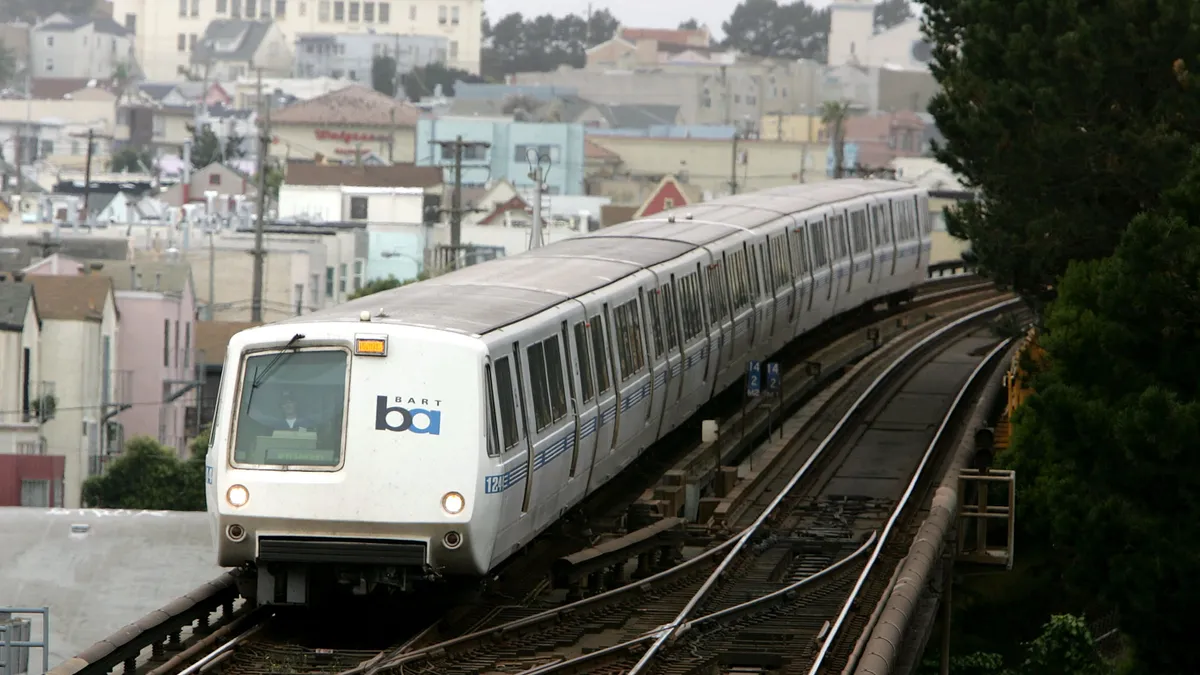Dive Brief:
- The San Francisco Bay Area Rapid Transit District, known as BART, settled a lawsuit on April 18 that alleged the transit system discriminated against people with mobility disabilities. The suit was filed in 2017 by Senior and Disability Action, Independent Living Resource Center of San Francisco and two individuals with mobility disabilities.
- The settlement agreement, approved by Judge Laurel Beeler in the U.S. District Court for the Northern District of California, requires BART to repair and renovate 87 station elevators and an unspecified number of escalators, address cleanliness on these apparatus and create a protocol for passengers who become separated from their mobility devices during an emergency.
- All BART stations have accessible elevators and escalators. But many rapid transit lines across the U.S. lack elevators or other stairless access in every station.
Dive Insight:
More than 900 transit stations built before the 1990 Americans with Disabilities Act lack full accessibility, according to the U.S. Department of Transportation. Court action has been influential in improving accessibility in a number of rail transit systems.
Opened in 1972, BART was originally planned without elevators or alternatives to escalators, as was the Washington Metropolitan Area Transit Authority’s Metrorail, which began operating in 1976, according to Greater Greater Washington, a D.C. area nonprofit advocate for equity in transportation and other areas. Through court action, disability advocates succeeded in making BART the first subway system with elevators in every station and in forcing WMATA to make elevators available in every Metrorail station.
Last year, the New York Metropolitan Transportation Authority agreed to a legal settlement requiring the agency to make 95% of New York City’s 364 inaccessible subway stations accessible to people who cannot use stairs by 2055. Disability Rights Advocates, a nonprofit disability rights legal center, was involved in the New York MTA and BART cases.
Referring to the settlement agreement with BART, Jinny Kim, supervising attorney at Disability Rights Advocates, said in a statement, “This settlement ensures that people with mobility disabilities are not excluded from the Bay Area’s mass transit system and do not receive a level of service vastly inferior to non-disabled people.”
BART provides the current status of elevator and escalator service on its website along with information on accessible services such as paratransit and a reduced-fare discount card for qualified persons with disabilities.












